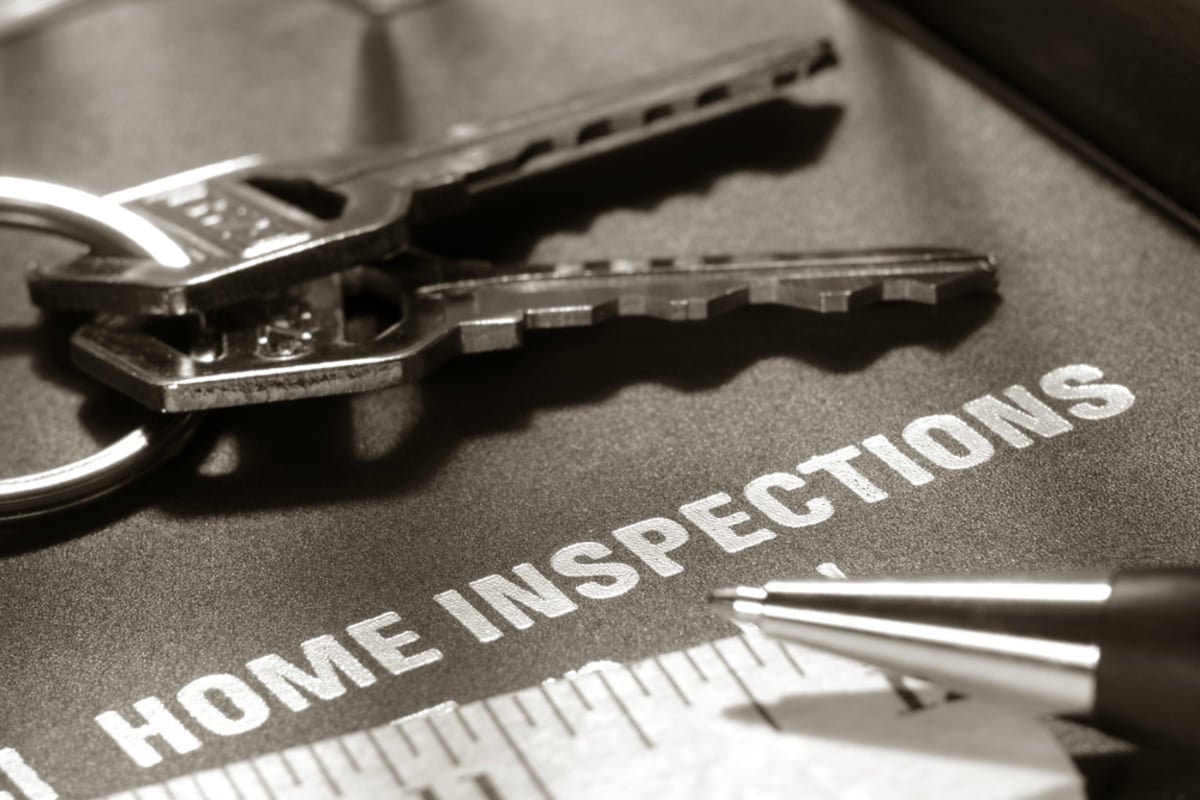When handling a long-term rental property, it's common to find that departing tenants have left belongings behind. Whether it's a piece of furniture, personal items, or even trash, dealing with such a situation can be quite challenging.
Our experts at Charleston Property Company will navigate long-term rental property management through legal obligations, practical solutions, and preventive measures to help you maintain your property efficiently. So, let's dive in and explore how best to handle these unexpected items left behind by tenants.
Dealing with Tenants' Abandoned Belongings
When tenants unexpectedly disappear and leave their belongings behind, property owners face the challenge of dealing with these abandoned items. This section will discuss two crucial steps: assessing the situation and complying with legal requirements.
Assessing the Situation
Before taking any action, it's essential to assess the situation thoroughly. Begin by documenting the condition of the property and the abandoned belongings. Take photographs or videos as evidence to protect yourself from any potential disputes. This documentation will serve as crucial evidence in case legal action becomes necessary.
Next, review the lease agreement to check for specific provisions regarding abandoned belongings. Some leases may outline a specific period after the items are considered abandoned. This information will help determine the appropriate course of action.
Complying with Legal Requirements
When dealing with abandoned belongings, you must comply with the legal requirements specific to your location. Laws can vary, so it is advisable to consult with a local attorney specializing in property management to ensure compliance. They can guide the specific steps you need to follow and the timeframes involved.
In many jurisdictions, the law requires property owners to provide a written notice to the tenant regarding the abandoned belongings. This notice typically specifies the date the tenant must claim their belongings. If the tenant fails to do so within the specified timeframe, the property owner may have the right to dispose of the items.
Remember, it is crucial to document all communication with the tenant regarding the abandoned belongings. Keep records of written notices, emails, or phone calls to the tenant. This documentation will serve as evidence that you have fulfilled your legal obligations.
Properly assessing the situation and complying with legal requirements allow property owners to navigate the challenges of dealing with abandoned belongings left behind by tenants. Understanding the specific laws and regulations in your area is crucial to ensure that you handle the situation in a legally compliant manner. Seeking advice from a qualified attorney will provide the necessary expertise to protect your rights as a property owner.
 Notifying the Tenant
Notifying the Tenant
When tenants abandon a property and leave their belongings behind, property owners must follow proper procedures to handle the situation. Notifying the tenant is crucial, ensuring they know the problem and allowing them to retrieve their belongings.
Contacting the Tenant
The first step in notifying the tenant is to attempt contact through various means of communication. This can include phone calls, emails, or even sending a formal written notice via certified mail. It's important to document all attempts at contact, including dates, times, and methods used.
Sometimes, the tenant may have left behind a forwarding address or emergency contact number. These can be useful in establishing communication and resolving the situation. If the tenant is unresponsive or cannot be reached, proceeding with the following steps in dealing with abandoned belongings may be necessary.
Documenting Communication
Maintaining detailed records of all communication while notifying the tenant is crucial. This documentation can prove that attempts were made to contact the tenant and resolve the situation legally and responsibly.
Keep a log of all communication attempts, including the dates, times, and nature. If you have left voicemails or sent emails, save copies of these messages. If you have sent a formal written notice, keep a copy of the notice and any proof of delivery.
By documenting all communication, you can demonstrate your efforts to comply with legal requirements and ensure a fair resolution for both parties involved. It also serves as a reference in case any future legal action needs to be taken.
Handling the situation professionally and following all applicable laws and regulations is essential. Seeking legal advice can provide further guidance tailored to your specific circumstances.
By properly notifying the tenant and documenting all communication attempts, you can take the necessary steps to address the issue of abandoned belongings while protecting your rights as a property owner.
Proper Disposal or Storage
When tenants disappear and leave their belongings behind, property owners must consider the appropriate steps to dispose of or store these items properly. It's crucial to handle this situation by local laws and regulations to avoid legal complications. Below, we will explore the options for disposal and the best practices for safely storing abandoned belongings.
Options for Disposal
Property owners have a few options to consider when disposing of abandoned belongings. However, it's important to note that the specific options available may vary depending on your area's local laws and regulations. Here are some standard methods of disposal:
-
Donation: If the abandoned items are still in good condition, property owners may choose to donate them to local charities or organizations that accept second-hand goods. This helps those in need and promotes sustainability by reducing waste.
-
Sale: Property owners may sell abandoned belongings to recover potential losses or unpaid rent. However, it's crucial to consult legal counsel to ensure compliance with local laws, including any requirements for notifying the tenant about the sale.
-
Trash Disposal: If the abandoned items are damaged, unsafe, or unsalvageable, property owners may need to dispose of them as trash. Following proper waste disposal procedures and complying with local regulations is essential to avoid environmental or legal issues.
Remember, it's highly recommended to consult with an attorney specializing in landlord-tenant law to understand the disposal options available in your area and ensure compliance.
Safely Storing Belongings
Property owners may safely store abandoned belongings in certain situations until they can be appropriately disposed of or returned to the tenant. Here are some best practices for safely storing abandoned belongings:
-
Secure Storage Area: Find a secure storage area within your property or consider renting a storage unit to store the items. Ensure the storage area is clean, dry, and protected from potential damage, such as pests or water leaks.
-
Documentation: Before storing the abandoned belongings, thoroughly document the items by taking photographs or creating an inventory list. This documentation can serve as evidence in case of any disputes or claims made by the tenant.
-
Time Limit: Establish a reasonable time limit for storing the abandoned belongings. This time limit should align with your area's local laws and regulations. If the tenant fails to claim their belongings within the specified timeframe, you can proceed with disposal by the law.
-
Communication: Maintain clear and documented communication with the tenant regarding the status of their abandoned belongings. Notify the tenant of the storage location and the timeframe for retrieval. This helps to ensure transparency and minimize potential conflicts.
By following these guidelines for proper disposal or storage, property owners can navigate the process of dealing with abandoned belongings legally and responsibly. Remember, seeking legal advice and understanding the local laws and regulations are essential to protect your property owner's rights.
Protecting Your Investment Property in Charleston, SC
As a property owner, proper property management is essential for protecting your investment and ensuring its long-term success. However, some challenges may arise, such as dealing with abandoned belongings left behind by tenants. This section will explore the importance of proper property management and the challenges you may face when handling abandoned belongings.
Importance of Proper Property Management
Proper property management is crucial for maintaining the value and profitability of your investment property. It involves various tasks, such as tenant screening, rent collection, property maintenance, and lease enforcement. By effectively managing your property, you can maximize its potential and attract reliable tenants.
This includes following best practices, staying updated with local laws and regulations, and partnering with professionals like a local property management company to handle the day-to-day operations.
One of the primary benefits of proper property management is the ability to address issues promptly and efficiently. This includes situations where tenants abandon the property and leave their belongings behind. A clear plan can minimize disruption and ensure a smooth transition between tenants.
Challenges of Dealing with Abandoned Belongings
Dealing with abandoned belongings can present unique challenges for property owners. It's essential to approach this situation carefully and follow the appropriate legal procedures. Some challenges you may encounter include:
-
Legal Compliance: Property owners must comply with local laws and regulations when handling abandoned belongings. This may involve specific timelines for notifying tenants, storing belongings, and disposing of items.
-
Storage Space: Abandoned belongings can occupy valuable storage space on your property. Depending on the quantity and size of the items, you may need to allocate additional space or make arrangements for off-site storage.
-
Costs: Handling abandoned belongings may involve storage fees, professional services, and potential legal fees. It's essential to consider these expenses when budgeting for your investment property.
-
Tenant Communication: When tenants abandon the property, attempting communication to resolve the situation is crucial. However, contacting the tenant may only sometimes be possible or successful. In such cases, documenting all communication attempts is vital for legal purposes.
By understanding the importance of proper property management and the challenges associated with abandoned belongings, you can better prepare yourself for such situations. We advise seeking legal advice to understand your area's laws and regulations. This will help you navigate the process effectively and protect your investment property.
Following the Lease Agreement
Property owners need to understand and follow the terms outlined in the lease agreement to effectively handle situations where tenants disappear and leave behind their belongings. The lease agreement serves as a legal contract between the landlord and the tenant, outlining the rights and responsibilities of both parties. By adhering to these terms, property owners can navigate issues such as nonpayment of rent and legally terminating the lease.
Understanding Lease Agreement Terms
The lease agreement provides a framework for the landlord-tenant relationship and establishes essential guidelines for both parties. It typically includes information such as the lease's duration, the rent amount, and the tenant's responsibilities. It's crucial to thoroughly review the lease agreement to understand the specific terms and conditions that apply to your property.
When tenants fail to pay rent or abandon the property, the lease agreement can provide valuable guidance on the appropriate steps. It may outline penalties for nonpayment, specify grace periods, and detail the lease-terminating process. By familiarizing yourself with the lease agreement, you can better navigate these situations by the agreed-upon terms.
Nonpayment of Rent: Legal Steps to Take
When tenants fail to pay rent, following the legal steps outlined in the lease agreement and local laws is crucial. Here are the general steps to take when dealing with nonpayment of rent:
-
Review the lease agreement: Verify the terms regarding rent payment, grace periods, and penalties for nonpayment. Ensure that you are following the agreed-upon procedures.
-
Communicate with the tenant: Reach out to the tenant to discuss the nonpayment and remind them of their obligations under the lease agreement. It's important to maintain clear and documented communication throughout the process.
-
Issue a notice: If the tenant fails to pay rent within the specified time frame, follow the legal requirements for serving a notice of nonpayment or pay or quit notice. This notice informs the tenant of their obligation to pay rent or vacate the property within a certain period.
-
Legal action: If the tenant still does not comply with the notice, consult an attorney to understand the legal options available. This may involve initiating eviction proceedings or pursuing legal remedies to recover unpaid rent.
By following the lease agreement and adhering to legal procedures, property owners can navigate the challenges of nonpayment of rent and protect their investments. It's advisable to consult an attorney familiar with local laws and regulations to ensure compliance and manage these situations effectively.
Seeking Legal Advice
When dealing with abandoned belongings left by tenants, seeking legal advice is a prudent step to ensure you navigate the process correctly. Consulting with an attorney specializing in landlord-tenant law can provide valuable guidance and help protect your rights as a property owner.
Consult a Lawyer
A lawyer or attorney with experience in landlord-tenant law can provide you with the necessary legal advice and assistance when dealing with abandoned belongings. They can help you understand your rights and obligations as a property owner, ensuring you follow the correct legal procedures.
During your consultation with an attorney, be prepared to provide them with all relevant documentation, including the lease agreement, records of communication with the tenant, and any evidence of abandonment. This information will help the attorney assess your situation accurately and provide tailored advice.
Remember that the laws and regulations regarding abandoned belongings vary depending on location. An attorney familiar with local laws and regulations can provide specific guidance based on your jurisdiction. Understanding the legal implications will help you make informed decisions throughout the process.
Understanding Local Laws and Regulations
Each jurisdiction may have specific laws and regulations regarding abandoned belongings left by tenants. Familiarizing yourself with these laws is crucial to follow the correct legal procedures.
Local laws may outline the steps you need to take to notify the tenant about the abandoned belongings, the timeframe they have to retrieve their belongings, and the options available for disposal or storage. Understanding these laws will help you avoid potential legal issues and protect your interests as a property owner.
Your attorney can guide you through the local laws and regulations relevant to your situation. They can explain the legal requirements you must comply with and help you navigate any legal complexities that may arise.
By seeking legal advice and understanding the local laws and regulations, you can confidently handle dealing with abandoned belongings left by tenants. Consulting with an attorney specializing in landlord-tenant law will help ensure you take the appropriate legal steps to protect your investment property.
 Utilizing the Best Tenant Screening Services to Minimize Cases of Abandoned Belongings
Utilizing the Best Tenant Screening Services to Minimize Cases of Abandoned Belongings
Charleston Property Management is a valuable partner in these challenging scenarios, providing comprehensive services to help property owners deal with abandoned belongings left by tenants. We offer a range of services tailored to address the specifics of this issue. First, we assist in documenting the condition of the property and the left-behind belongings, using a systematic approach that ensures every detail is noticed.
Second, we manage communication with the tenant on your behalf. This includes making contact attempts, sending notifications about abandoned belongings, and maintaining clear and detailed communication records. Our dedicated team ensures that all procedures adhere to the legal requirements, thus providing a seamless communication process.
Charleston Property Management also oversees the safe storage or disposal of abandoned belongings. We follow local regulations to the letter, whether it involves donating, selling, or trashing the items. If storage is necessary, we manage this process effectively, from finding a secure location to documenting the items and setting a retrieval timeframe.
Last, we have a network of trusted legal professionals specializing in landlord-tenant law. These experts can offer legal advice, helping you understand your rights and obligations and guide you through the legal complexities of dealing with abandoned belongings.
Choose Charleston Property Management to navigate these challenges confidently and safely. Our comprehensive services aim to protect your rights, secure your investment, and provide a smooth property management experience.
If you’re ready to discover more about protecting your investment, download our free guide “Protecting Your Investment Property: A Guide” today!


 Notifying the Tenant
Notifying the Tenant Utilizing the Best Tenant Screening Services to Minimize Cases of Abandoned Belongings
Utilizing the Best Tenant Screening Services to Minimize Cases of Abandoned Belongings






